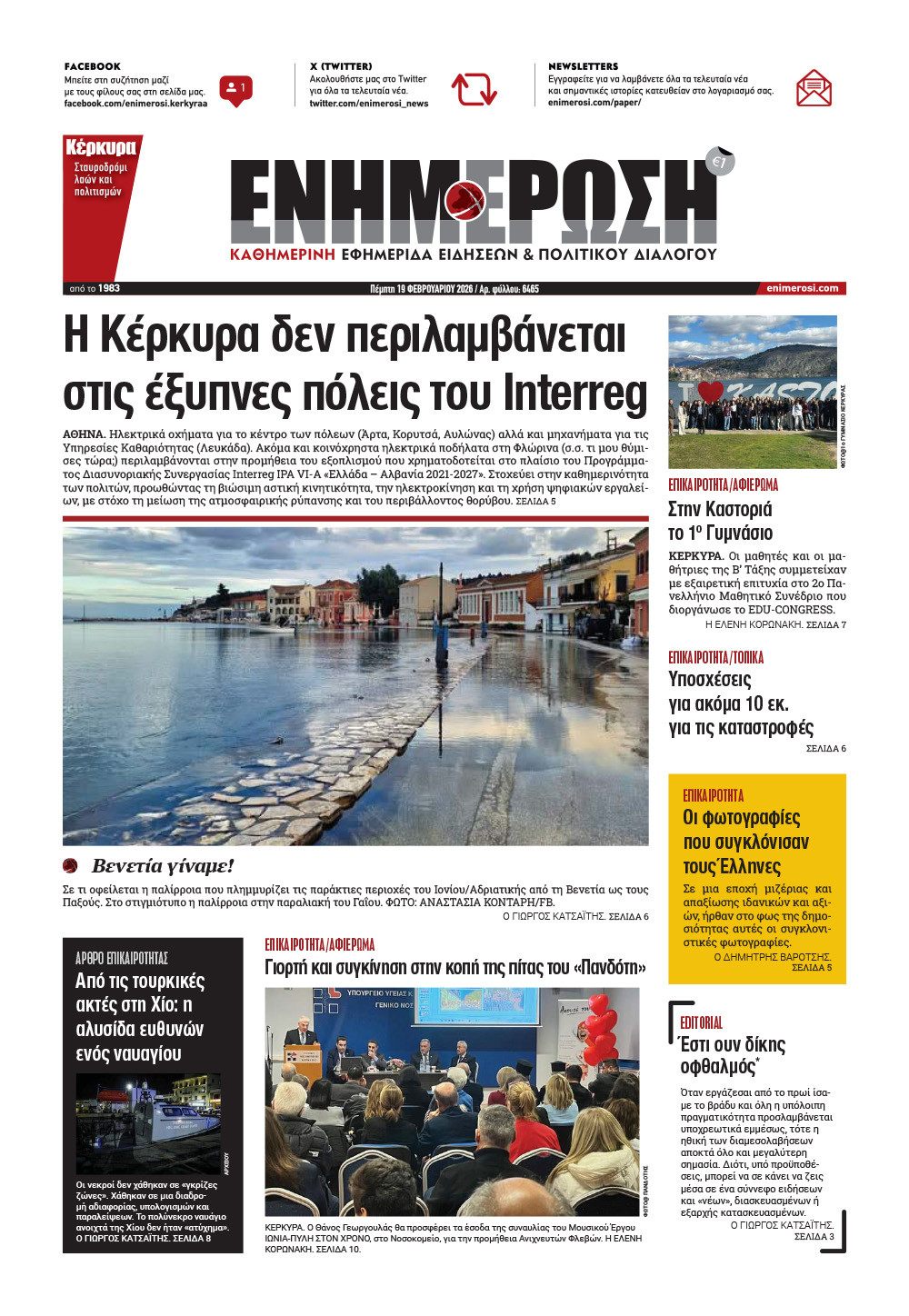Climate change and Greek tourism

climate change
11 Mar 2025
/ 13:41
CORFU. Climate change significantly affects the tourism product, as it alters climatic conditions, impacts natural landscapes and transforms tourists΄ preferences.
Climate change significantly affects the tourism sector as it alters climatic conditions, impacts natural landscapes and transforms tourist preferences. The key impacts include:
Changes in Tourism Demand and Seasonality
- High temperatures and extreme weather events (heatwaves, storms) can make certain destinations less attractive, especially during the summer months.
- Winter tourism (e.g., ski resorts) is affected by reduced snowfall, while new destinations at higher latitudes may benefit.
Environmental Degradation and Loss of Natural Resources
- Rising sea levels threaten coastal tourism areas, islands and hotel infrastructure.
- Coastal erosion and beach loss reduce the appeal of seaside destinations.
- Wildfires and droughts impact the natural environment and the visual attractiveness of tourist locations.
Infrastructure and Maintenance Costs
- Tourist facilities are increasingly at risk from extreme weather events (storms, floods, earthquakes).
- The need for investment in resilient and sustainable tourism infrastructure is growing, as well as in construction projects to mitigate these risks.
Health Impacts
- Rising temperatures may lead to an increase in diseases (e.g., the spread of tropical illnesses to new regions).
- Heatwaves can negatively affect tourists’ health.
Changing Traveller Preferences
- Tourists may seek cooler destinations (e.g., Northern Europe) or turn to alternative forms of tourism (agritourism, ecotourism).
- Demand for sustainable and eco-friendly accommodation options is increasing.
To mitigate these effects, the tourism sector must invest in:
- Sustainable practices (renewable energy sources, reducing CO₂ emissions).
- Climate-resilient infrastructure.
- Diversification of tourism products (development of alternative tourism forms).
Adapting to climate change is crucial for maintaining the competitiveness of tourist destinations and ensuring a healthy urban environment and visitor well-being.
Eirineos Nik. Manetas
Coordinator of Tourism Agents – Secretariat of Productive Sectors and Entrepreneurship, N.D.
Photo: EDDIE KASTAMONITIS












